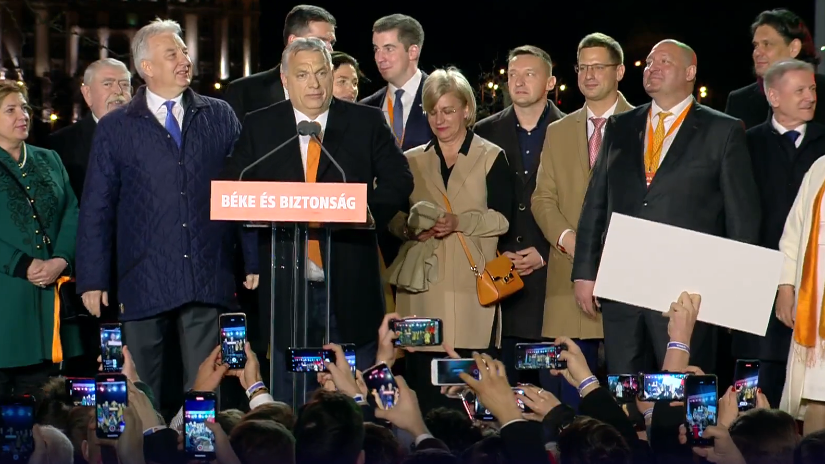April 3, 2022 will go down in Hungarian political history as the most significant event of Hungarian democracy in the era following the transition away from communism. The parliamentary elections held this Sunday and the child protection referendum held at the same time proved that Hungarian democracy is alive and well, the legal framework is stable and provides sufficient guarantees against external interference and internal abuses to ensure the integrity of the elections.
The turnout serves as clear confirmation: about 70 percent of those Hungarian citizens who were eligible exercised their right to vote. Although the official results of the vote remain to be announced, it is already clear that Fidesz-KDNP has achieved a political feat of historic magnitude: never before in the history of free and fair parliamentary elections in Hungary has a coalition won a two thirds majority, which we can confidently project, based on preliminary results, in four consecutive parliamentary elections. Voter turnout was not much lower than four years earlier, or the record-breaking 2002 figure of 70.53%. In 2018, 70.22% of the Hungarian citizens with a legal residence turned out to vote. This was the third highest turnout in a national election in Hungary since 1990. The war in a neighboring country raised the stakes considerably, and the child protection referendum provided extra motivation.
The electoral system in place since 2014, with some fine-tuning changes, has once again proved highly efficient in practice. In all 10,285 polling stations, the votes cast were counted within a short timeframe, in accordance with the law, and the turnout figures were published every two hours during the day. The efficient organization of the elections is clearly indicated by the fact that, despite the need to count three ballots (instead of the customary two), which meant extra work, the results were published within 2-3 hours of the polls closing, as had previously been the case. Despite the extra ballot paper distributed to the citizens due to the referendum, the election took place without significant queues and disruptions at all polling stations. The IT support for the election also worked well throughout the day, with valasztas.hu being available throughout the process despite the higher than usual interest and more internet queries.
Although the official results of the vote remain to be announced, it is already clear that Fidesz-KDNP has achieved a political feat of historic magnitude: never before in the history of free and fair parliamentary elections in Hungary has a coalition won a two thirds majority, which we can confidently project, based on preliminary results, in four consecutive parliamentary elections. Moreover, the conservative alliance that won a two-thirds majority in parliament between 2010 and 2018 was able to win again despite a greater party concentration than in any previous elections: the left-wing forces that had previously run separately or, at best, in a coordinated fashion, joined forces and ran a joint candidate in all 106 districts instead of six separate candidates, one from each. However, they failed to make a breakthrough: they remained far from winning the 100 seats needed to form a government. The éminence grise of the opposition, Ferenc Gyurcsány, can nevertheless consider himself satisfied, as his Democratic Coalition will have the largest parliamentary group on the opposition’s side.
All this was achieved despite what seems to have been unprecedented electoral fraud committed in the run-up to the 3 April election by DatAdat, a company linked to the left, and owned by former Prime Minister Gordon Bajnai and former Minister of State for Intelligence Ádám Ficsor. They committed never before seen mass violations and crimes in the interests of the left, using databases of personal and private information of Hungarian voters without receiving their prior consent. The abuse of data belonging to millions of Hungarian citizens will have to be investigated by the National Authority for Data Protection and Freedom of Information after the elections.




Comments are closed for this post.